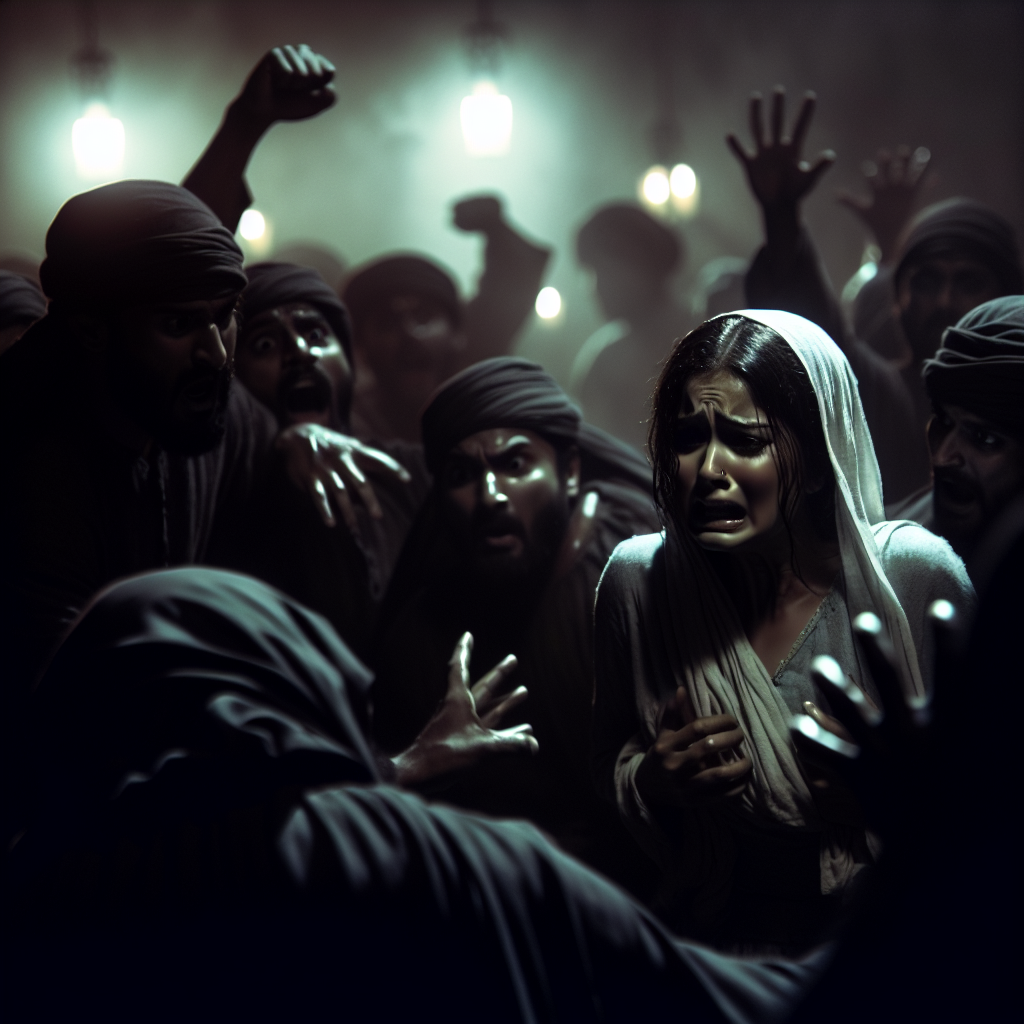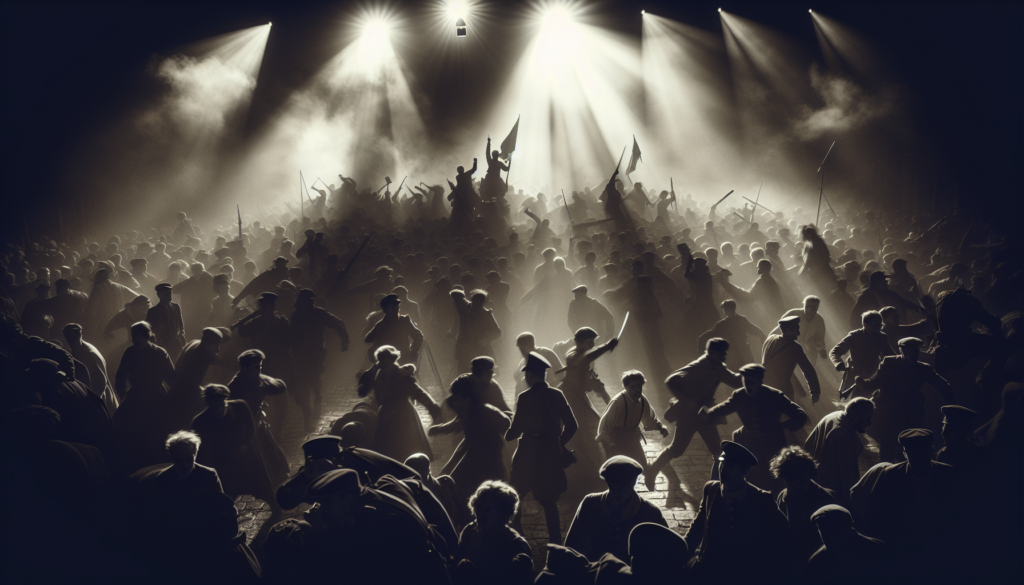
Dive into Echoes of Salem, where the delicate balance between belief and governance is explored through the chilling parallels between the Salem Witch hunts and today’s political landscape. Unveil the threads connecting past and present and learn the urgent lessons to prevent history’s flames from reigniting.
Introduction
In the heart of every society lies a delicate balance between belief and governance, a balance that, when tipped, can unleash a torrent of fear and fanaticism. As we navigate the turbulent waters of modern politics, the haunting specter of Salem rises from the ashes, reminding us of the perilous path we tread when religious fervor is wielded as a tool of division. This blog delves into the chilling parallels between past and present, unraveling the threads that connect the witch hunts of Salem to today’s political landscape. Join us as we explore the echoes of history and the urgent need to heed its lessons before we once again ignite the flames of our own destruction.
Salem Witch Trials
In the dim echoes of history, we find ourselves haunted by the specter of Salem—a town where fear, faith, and fervor combusted into a fiery trial of human spirit. Today, as we stand on the precipice of political tumult, the eerie parallels between past and present become impossible to ignore.
Imagine a nation where a political party, cloaked in the sanctity of religion, draws stark lines of morality—declaring who is righteous and who is damned. The air thickens with the murmur of doctrines weaponized, a haunting reminder of when faith was twisted into a torch, setting the world ablaze with righteous fury.
It harks back to a time when women, bound by the misfortune of difference, were condemned to the flames. Branded as witches by the iron grip of male-dominated religion, their cries were drowned in the crackling of burning wood. Salem, a name forever etched in the annals of human cruelty, serves as a dire warning of the peril when belief is used as a bludgeon rather than a beacon.
Balance of Belief and Governancen?
Today, the echo is unmistakable. A political landscape where religious fervor dictates law and justice, forging a path not of unity, but of division. The witch hunts of Salem were not merely the product of superstition—they were the result of a society wielding religion to justify unspeakable acts. It was a time when the pious became persecutors, and the innocent bore the burden of blind zeal.
As we watch this modern spectacle unfold, we must ask ourselves: Have we learned nothing from the ashes of Salem? The names and faces may change, but the essence remains—a chilling tableau of power, fear, and fanaticism. It is a call to vigilance, a plea to remember that when religion becomes a tool of oppression, we ignite the pyres anew.
Salem’s tragedy was not an isolated incident—it was a manifestation of what happens when humanity loses sight of compassion, allowing fear to masquerade as righteousness. Today, as political forces weave religious narratives into the fabric of governance, we stand at a crossroads. We can either heed the lessons of the past or risk repeating them, watching as our society smolders in the flames of our own making.
Religious Extremism in Politics
In the United States, the debate over reproductive rights has seen religious beliefs shape policies that impact millions. Laws restricting access to abortion, often justified by religious doctrine, have sparked heated debates and led to a deepening divide. The recent overturning of Roe v. Wade has reignited these tensions, highlighting how religiously motivated legislation can polarize a nation and impinge upon personal freedoms.
Across the globe, we see the rise of authoritarian regimes that manipulate religious sentiments to consolidate power. In India, the Hindu nationalist movement has fueled discrimination against religious minorities, particularly Muslims. This exploitation of faith to further political agendas has led to increased violence and societal fragmentation, reminding us of the peril when leaders use religion to draw lines of division rather than unity.

Faith-Based Political Division
In the fraught political landscape of recent years, former President Donald Trump’s appeals to Christian voters have often ignited controversy and division. His calls for action, framed within a religious context, have at times mirrored the fervor of historical zealotry, stirring fears of a nation divided by faith and politics.
One striking example came on January 6, 2021, when Trump addressed a crowd of his supporters before they stormed the U.S. Capitol. With a backdrop of flags and fervent cheers, Trump invoked religious and patriotic themes, urging his followers to “fight like hell” to save their country. Among the crowd were many who saw their actions as a divine mandate, fueled by a belief that they were defending their faith and nation from perceived existential threats.
This rallying cry resonated deeply with a segment of his Christian base, who viewed Trump as a protector of their religious values. The resulting chaos, violence, and tragic loss of life at the Capitol highlighted the perilous consequences of blending political ambitions with religious fervor. It served as a stark reminder of how powerful leaders can exploit faith to galvanize action, often with destructive results.
The events of January 6 stand as a modern-day testament to the dangers of intertwining religion and politics. They remind us of the critical need for leaders to wield their words with care and for societies to remain vigilant against the misuse of faith as a tool for division. The lessons of Salem are not confined to the past; they reverberate in our present, urging us to seek unity and understanding in a world too often divided by fear and zeal.
Conclusion
As we reflect on the haunting echoes of Salem, the urgency of our present moment becomes starkly clear. The flames of division, once kindled by a perverse fusion of religion and power, still threaten to engulf us. Our society stands at a critical juncture, where the lessons of the past must guide our future. We cannot afford to repeat the mistakes that led to the tragedy of Salem, where fear and fanaticism overshadowed compassion and reason.
In remembering the women who perished under the banner of righteousness, we honor their legacy by striving for a world where belief is a source of unity, not division. Let their stories serve as a somber reminder of the consequences when we allow zealotry to dictate justice.
Our challenge today is to safeguard the delicate balance between faith and governance, ensuring that our society is built on principles of inclusivity, empathy, and understanding. Only then can we prevent the resurgence of the flames that once consumed Salem and create a future where justice is truly blind, and humanity is the guiding light.
Trump’s rhetoric didn’t just mobilize a crowd; it tapped into a broader narrative of religious persecution and cultural warfare. By casting political opposition as an assault on Christian values, he forged a divisive us-versus-them mentality. This manipulation of faith to further political ends echoes historical instances where religious fervor was used to justify actions that tore communities apart.
In the end, the true measure of our progress will be our ability to learn from the past and forge a path that honors the dignity and worth of every individual, regardless of creed or conviction. Let us heed the warnings of history and move forward with a renewed commitment to justice, compassion, and unity.
